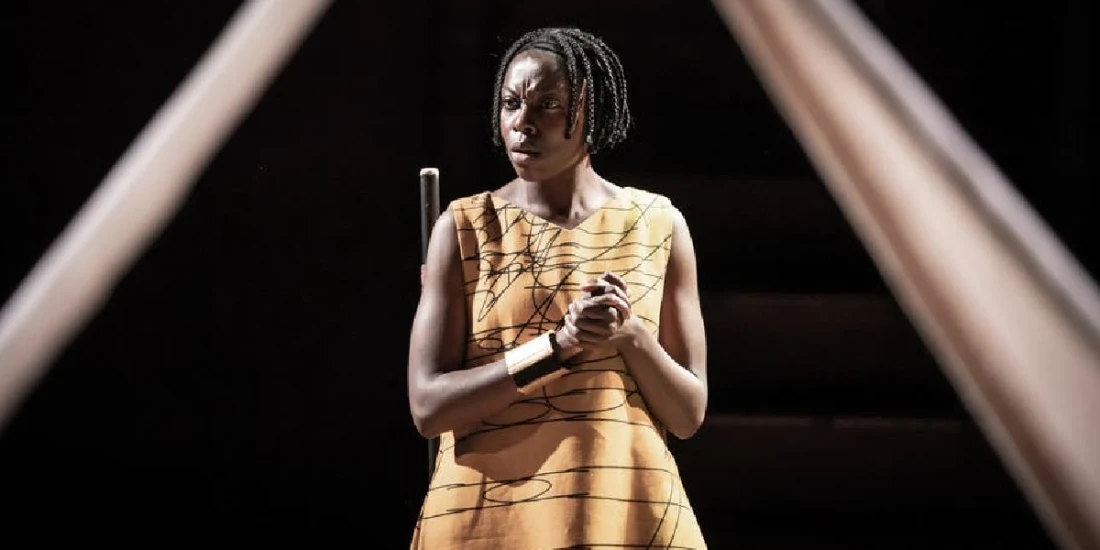'Changing Destiny' at the Young Vic is a few bricks short of a pyramid
Changing Destiny makes all sorts of sense as a Covid-era selection with which to reopen the invaluable Young Vic: an hour in length with a cast of two and drawing upon a seminal text from ancient Egypt called Sinuhe that is widely thought to presage many of the great epic narratives that followed (The Odyssey, for one). Like The Mahabharata from Peter Brook, a legendary director well-known to Young Vic audiences, Sinuhe in the Booker prize-winning Nigerian writer Ben Okri's distillation of this source aims to locate what resonance it can between a picaresque tale of old from a far-off land and a world that right now knows a thing or two about immigration and displacement and the need, psychically and physically, to be made whole.
Why then does the finished result not fully add up? The fault lies not in all in a brisk production from the theatre's artistic director Kwame Kwei-Armah, who took to the stage following the second of two press nights to welcome us back to the theatrical fold within "the topsy-turvy world of Covid." His chosen set design, two intersecting pyramids, the bottom of which folds out to allow a fabric- floored playing space for the actors, gives pride of place to the celebrity architect Sir David Adjaye. Doubling as costume designer, Adjaye and his team are inhabiting a very different realm from their more customary worlds of museums and academe, and the visuals conjoin with Duncan McLean's projections and musical director XANA's soundscape (with a score by Tunde Jegede) to make something immediately enticing out of unfamiliar material.
The sticking point for many, I suspect, will be the poem-turned-play itself, which comes at us packed with Big Ideas without ever quite acquiring an independent theatrical momentum. Once the two superb performers, Joan Iyiola and Ashley Zhangazha, have smilingly cheered our presence and played a game of rock/scissors/paper to see who will play which role(s), we're off into an extended parable about connecting up with our spirit selves. That, in turn, isn't as easy as it may seem given various threats posed by civil war, banishment, tyranny, and other forms of disorder too numerous to name.
You're forever aware of the import of what is being described without having much by way of actual character to bring these events alive. That result posits the Egyptian royal guard Sinuhe's bifurcated self (with Zhanghazha as the body on Saturday night, and Iyiola as the soul) as more of a theoretical construct than anything else: a repository for momentous ideas that feel themselves as if they haven't quite been allowed to take necessary theatrical wing.
Still, it's not every week that you twice come across shows involving a Pharaoh (the revival of Joseph and the Amazing Technicolor Dreamcoat was the other), even if the figure whom Sinuhe so fretfully serves meets a rather different end - and isn't here conceived as an Elvis stand-in. You're aware throughout of the importance of ritual and the folkloric to theatre-making and the passing of the baton across centuries and cultures that has allowed this story to reach us today. But like Bagdad Cafe newly opened at the Old Vic just up the road, Changing Destiny needs greater flesh on its elegantly imagined bones. "Let us end as we began," we're told as we come full circle with a time-honoured chronicle that could be yet more teased out and tested in other iterations perhaps still to come.
Changing Destiny is at the Young Vic to 21 August.
Photo credit: Changing Destiny (Photo by Marc Brenner)
Originally published on
